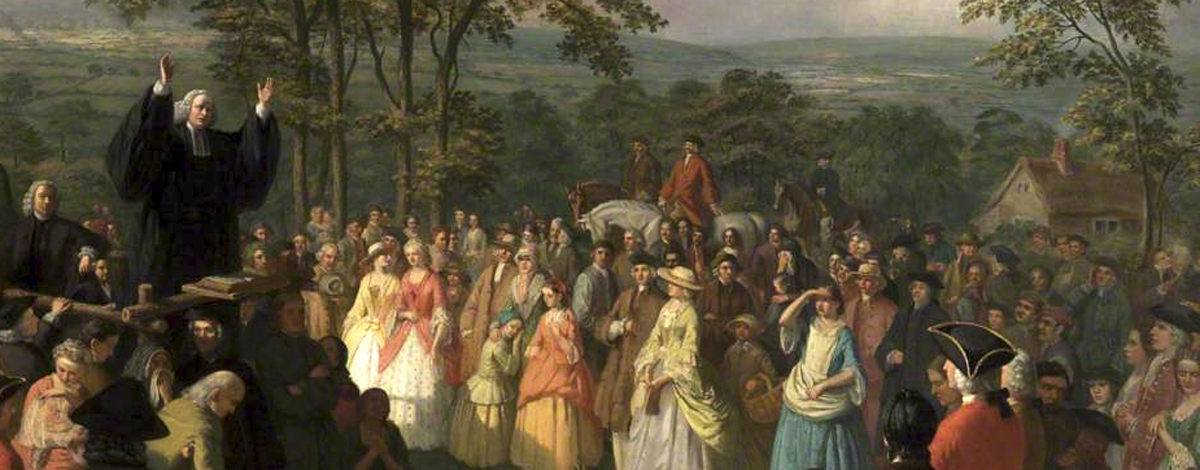- What are Religious Affections?
- The Biblical Understanding of the Heart
- How to Cultivate a Healthy Heart
- Freedom from Disordered Affections
- How to Hear God’s Voice
How can we experience God in a deeper and more intimate way? What role do Religious Affections play in the inner life of a mature believer? These are some of the questions I have been pondering during my sabbatical.

Religious Affections is the title of a widely respected book completed by Jonathan Edwards in 1736. Many consider this work to be one of the most important and most accurate accounts of religious experience ever written.
Jonathan Edwards was born into a Christian family and became a well-known pastor and preacher. He was a contemporary of John Wesley and George Whitefield.
In the First Great Awakening (1740-1742), thousands of people had powerful religious experiences leading them to repentance and surrender to God. Due to some of the extreme emotions expressed at that time, many of the more traditional church leaders were skeptical of the movement. Jonathan Edwards wrote Religious Affections in response to these questions.
What are Religious Affections?
In his book, Edwards begins with a reflection on 1 Pet. 1:8. The readers of 1 Peter were “exiles” (v. 1) who had been forced to flee their homes due to persecution. After the opening of the letter, Peter briefly describes the living hope that we have through the death and resurrection of Jesus Christ (vs. 3-5). They rejoice in this, even though for “a little while” they are facing serious trials (v. 6). God has allowed them to face these trials so that their faith would be tested, and the genuineness of their faith would result in praise, honor, and glory to God (v. 7).
In v. 8 Peter describes the characteristics of a faith that has been refined and purified through trials. A mature faith is evidenced by a deep, abiding love for God and an unshakable joy. Verse 6 begins “In this you rejoice”, referring to the glorious gift of salvation described in vs. 3-5. In the midst of trials, we rejoice in what God has done for us in Christ. That is the foundation for our joy.
These deep, abiding emotions are what Edwards calls “religious affections.” He distinguishes them from sudden, short-lived feelings that he calls “passions.” Here is his definition of religious affections:
“The affections are no other than the more vigorous and sensible exercises of the inclination and will of the soul.”
Our word “emotions” is extremely broad, including both what Edwards would call “affections” as well as much more shallow, temporary feelings. I will use the word “affections” to describe these deeper, more lasting emotions.
Why do Religious Affections Matter?

There are hundreds of passages in the Bible that describe and command various religious affections. One of the most famous is the story of a scribe who asked Jesus which commandment was the more important. Jesus replied:
“The most important is, ‘Hear, O Israel: The Lord our God, the Lord is one. And you shall love the Lord your God with all your heart and with all your soul and with all your mind and with all your strength.'” (Mk. 12:29–30, ESV)
The most important commandment is that we love God with everything that we are. Loving God does not mean simply to try harder or do more. It is a deep-seated religious affection that impacts everything that we do. Loving God is more than a feeling, but it is certainly not less than a feeling.
Many other passages call on us to show love, hope, desire for God, gratitude, compassion, and mercy. These religious affections are not merely incidental, but are essential to living the Christian life. Edwards says that religious affections are an important sign that we have truly experienced God’s grace in salvation:
“He who has no religious affection, is in a state of spiritual death, and is wholly destitute of the powerful, quickening, saving influences of the Spirit of God upon his heart.”
Wesley and many others make similar statements. What is the role of religious affections in our spiritual lives, and how are they related to our thoughts and choices? That will be the topic of my next post.
If you would like to watch a message I shared on this topic you can find it here. Please share your thoughts in the comment section below.
